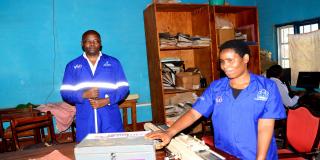
“When my wife learnt that I was going totally blind, she left me and our three children.” 35-year-old Alfred’s life changed turned upside down as his sight started to fade due to glaucoma – as well as his wife, he lost his job as a teacher and his home.
Losing the ability to see is terrifying enough, but in many countries around the world, such as Uganda where Alfred lives, visually impaired people have to deal with social and professional stigma on top of their disability. They are vulnerable to higher rates of anxiety and depression, as well as barriers to employment.
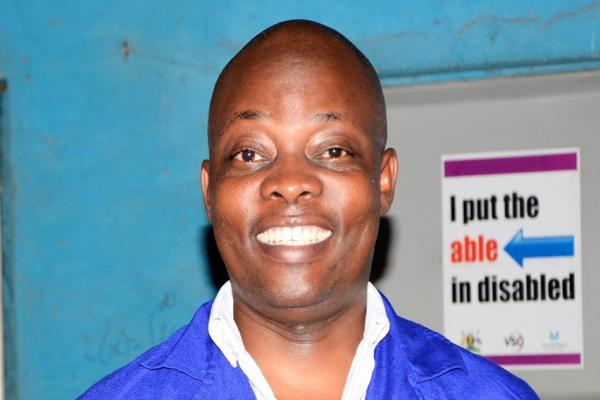
“[My blindness] happened after the COVID-19 pandemic. As a maths and physics teacher, I had been out of work for months. When schools eventually opened I was frustrated. I didn’t bother trying to resume work. I was convinced that I was going to be rejected from teaching positions because of my condition,” Alfred says.
A brighter future
Thankfully, Alfred’s luck started to change when his uncle stepped in and helped him to study braille and Computer Science at the Uganda National Association of the Blind.
Braille is a system of raised dots that can be read with the fingers by people who are blind or who have low vision. Alfred was encouraged to do this so that he could switch his teaching career to working with visually impaired people.
In 2021, Alfred’s life began to change again. He joined a VSO project, which aimed to economically empower marginalised people. VSO taught Alfred and others to effectively save and trained them for entrepreneurship and employability opportunities.
“I was battling self-esteem and financial issues, but when I got to know about the VSO project, I started seeing a progressive change in my attitude especially to life, finances, and my ability to change things around me. I now know that my contribution matters,” Alfred says.
Alfred is also now leader of a group called the Kireka Progressive Development Association. Together with his colleagues, the group pitched a business idea – opening a unisex hair salon – and won! The group received business kits to start them off and the salon is now open for business.
The hair salon providing hope
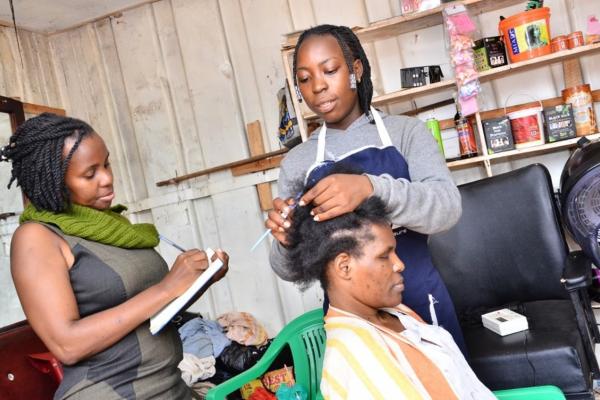
The salon employs three young women, including one who is visually impaired. The group decided to pay based on commission for completing jobs. Alfred explains:
“We did this because we wanted the business to grow first before we could pay ourselves as shareholders. We want to give it a year and see how it works out. If by that time the shop can sustain itself, we will start paying ourselves.”
According to Alfred:
“The salon has boosted mine and other members’ savings and my financial status has improved significantly. Currently our group accumulative savings is over 4 million Ugandan shillings (approximately £827).
"When we first started in July 2021, we had savings of 70,000 Ugandan shillings (approximately £14). I now save between 5,000 and 10,000 Ugandan shillings per week (approximately £1 and £2). I’ve even left my uncle’s house as I can afford to take care of myself and my children now."
The challenges
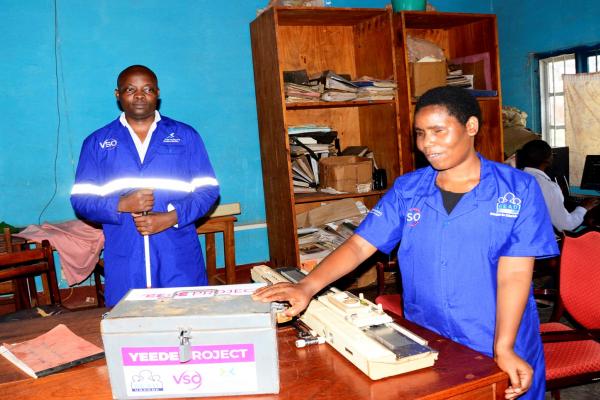
Despite the successes there have been some challenges.
“Setting up the business wasn’t easy. The majority of members didn’t have jobs. As the leader, I suggested that each interested member should buy shares in the salon; each share was sold at a small price. This approach helped us raise enough money to pay rent for three months. We could also buy some products like shampoo, hair treatment and relaxers,” Alfred explains.
He also noted that stigma against people with disabilities is still rife in the community where they work.
“We have a visually impaired hairdresser but when we first opened the salon, convincing customers that she could braid or style to their satisfaction was a big problem. Most people ran away or refused her service. It took some time before she was accepted, and then those who saw her work doubted her visual impairment,” Alfred says.
The group hopes the hair saloon business will continue to grow and prosper. Alfred has also now completed his course and soon the government of Uganda will place him to teach people with disabilities.
Learn more about our livelihoods work
Discover even more ways that you're helping marginalised people like Alfred develop the techniques needed to build sustainable and resilient livelihoods.
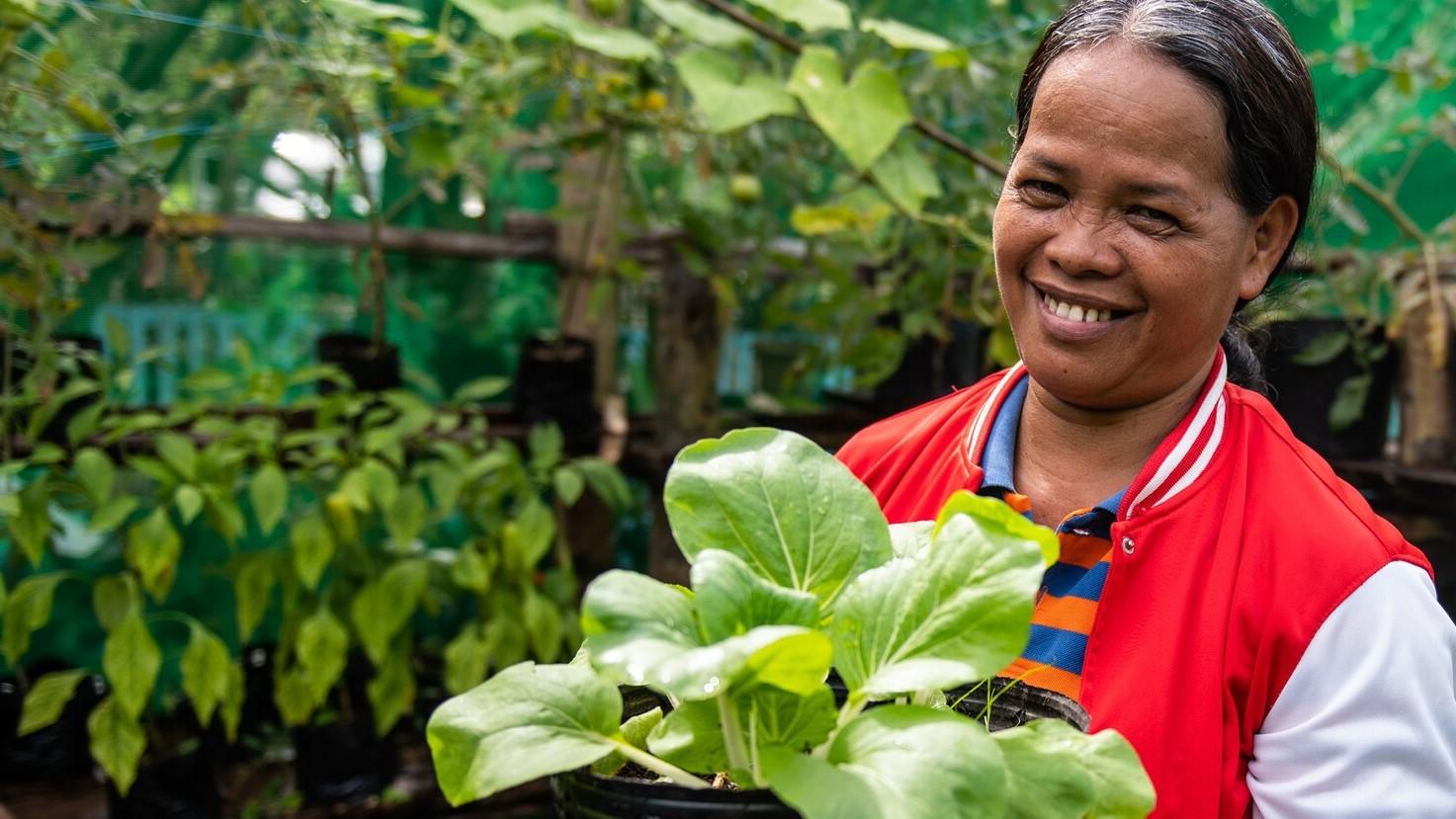
Support us with a donation
Read more

Transforming lives through education: Geoffrey’s VSO legacy
With a deep belief in the transformative power of education, Geoffrey from Norfolk, UK, has devoted his life both in the UK and abroad to making education more accessible for all.

A ripple of change: how VSO volunteers are transforming communities
Every act of volunteering begins with a choice — a decision to act out of a desire to make a difference. Across the world, VSO volunteers are proving that one spark of action can ignite something much bigger.
